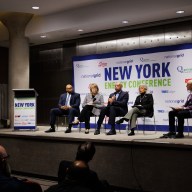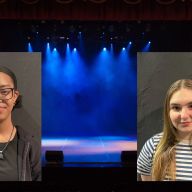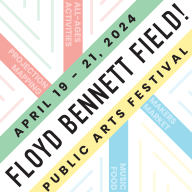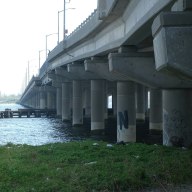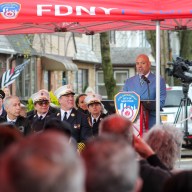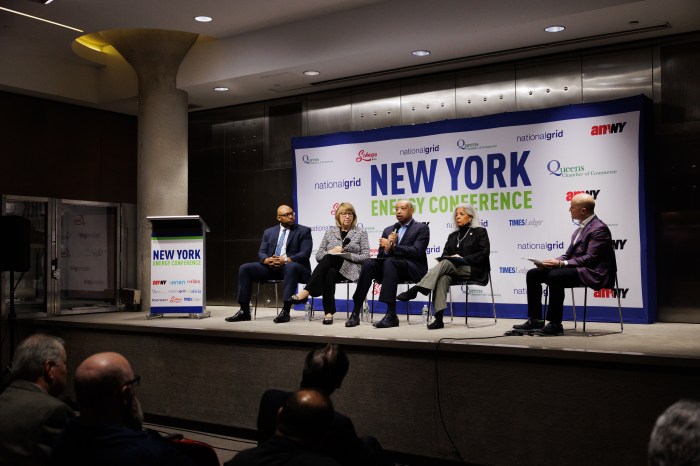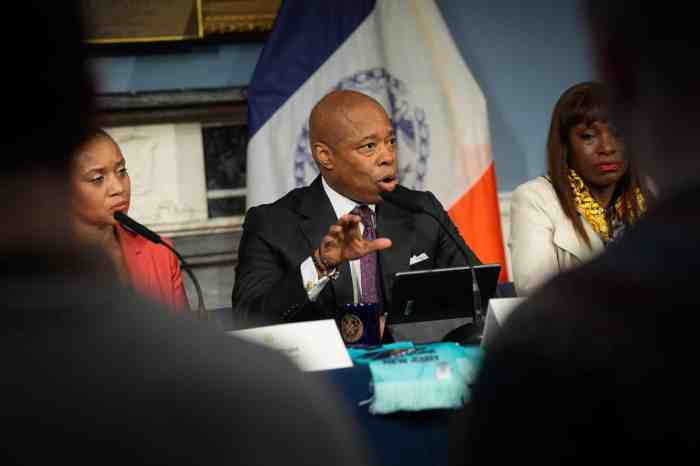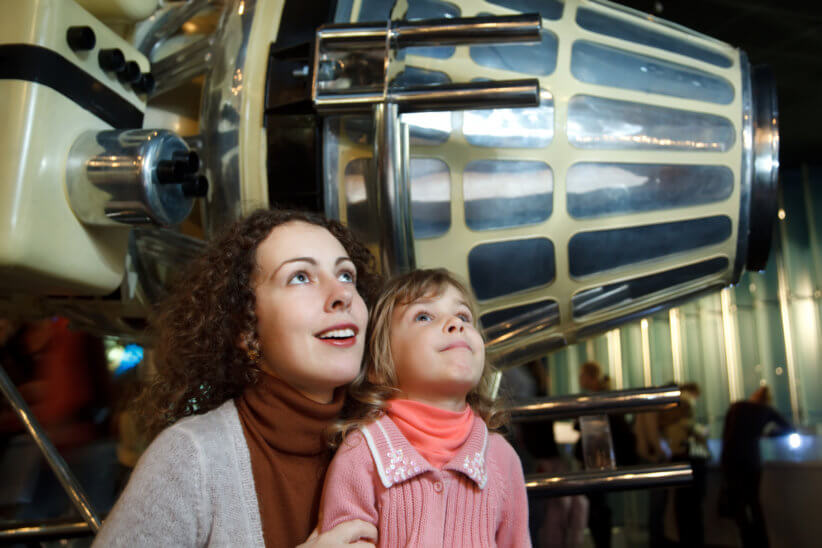The center, at 102-09 Northern Blvd., is the latest milestone for the Queens…
By Dustin Brown
The Lesbian and Gay Community Center, the first such center in the borough, officially opens its doors Thursday from 7 p.m. to 9 p.m. in Corona’s old Langston Hughes Library.
The center, at 102-09 Northern Blvd., is the latest milestone for the Queens Lesbian and Gay Pride Committee, which was created in 1992 to counter local incidents of anti-gay bias and to show residents of Queens that “lesbians and gays are their families, friends, and neighbors,” said founder Daniel Dromm.
For years the committee’s sole charge was organizing the Queens Lesbian and Gay Pride Parade and Festival, which in recent years has attracted more than 40,000 spectators.
What began as a parade committee has evolved into an organization sponsoring such diverse programs as sensitivity training for city police officers, AIDS memorial services, youth dances, anti-violence events, and winter pride dinner dances — enough to warrant finally finding a place to call home.
“The Queens Lesbian and Gay Pride Committee has been at the forefront of efforts to build a safer, more educated and more tolerant community,” said City Council Speaker Peter Vallone (D-Astoria), one of many local officials who secured funding for the center. “More importantly, they have helped to improve the lives of not only the gay and lesbian community, but of all New Yorkers.”
QLGPC shares the Langston Hughes Library facility with the Jackson Heights Community Development Corporation and is regularly scheduled to use the space on Sunday, Wednesday, and Friday evenings. A host of groups has approached QLGPC about using the center, which is already home to an Alcoholics Anonymous group and a youth support group called Generation Q.
“When I came out there were no support systems, and that’s a major part of my motivation in terms of starting this center,” Dromm said. “That terrible sense of isolation and feeling that I was the only one in the whole world when I grew up is something we want to avoid having the next generation of lesbians and gays grow up with.”
While feelings of isolation still haunt many of today’s gay youth, the advent of e-mail has made the difficult chore of organizing them a bit easier, said Larry Menzie, social services director for QLGPC.
“We describe it as a safe, supportive, sober environment where kids can meet each other and form positive social supports because we know what’s happening to them in schools and with their families,” Menzie said. “Lesbian, gay, bisexual and transgendered youth often don’t have a safe place to turn — often the home isn’t even a safe place, and school certainly isn’t.”
Generation Q has been meeting monthly since May, and over the course of 10 months attendance has ranged from 3 to 30. While e-mail enables the organizers to stay in touch with those who attend the meetings, the challenge is getting the word out to those who don’t.
“First they have to hear about it, which is difficult,” Menzie said. “Then they have to think about it; then they’ll walk by it, drive by it. They may want to see who’s there, and then they may walk in. Especially with outreach for this population, you just have to be there for them.”
Although the Generation-Q program is a fundamental component of the center’s services, Dromm stressed that the community center caters to far more than just gay youth.
“In the gay world, it’s really the focal point for the lesbian and gay community’s organizing within the borough,” Dromm said.
Generation Q meets at 7:30 p.m. on the first Friday of every month, and Alcoholics Anonymous meets every Sunday at 6 p.m.
For more information about the Queens Lesbian and Gay Pride Committee and the community center, call 718 GAY-2300, or e-mail to generationQ@hotmail.com.
Reach reporter Dustin Brown by e-mail at timesledgr.com, or call 229-0300, Ext. 154.








